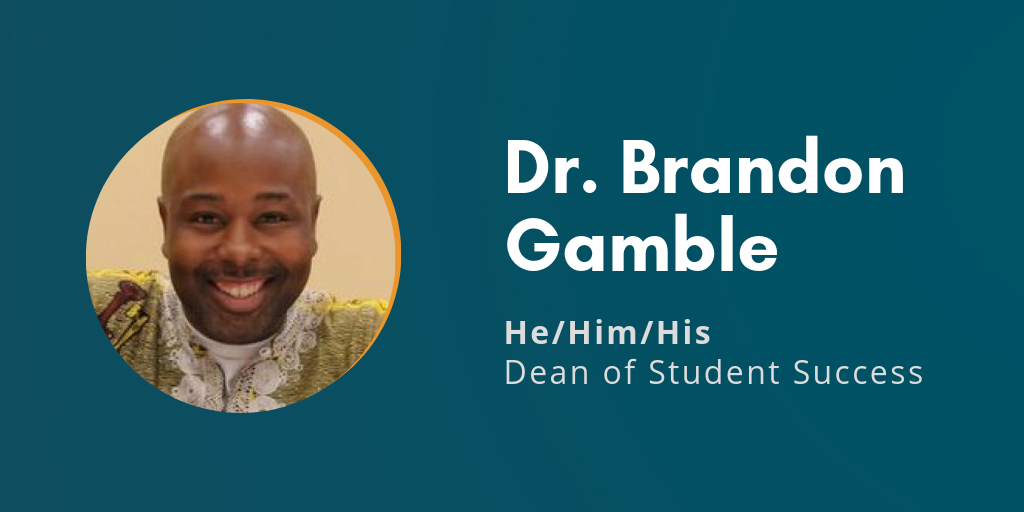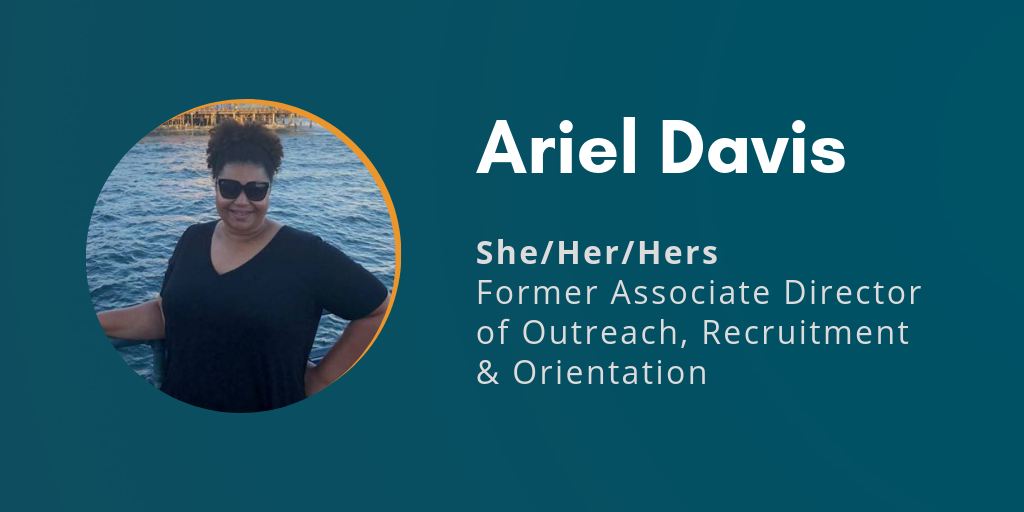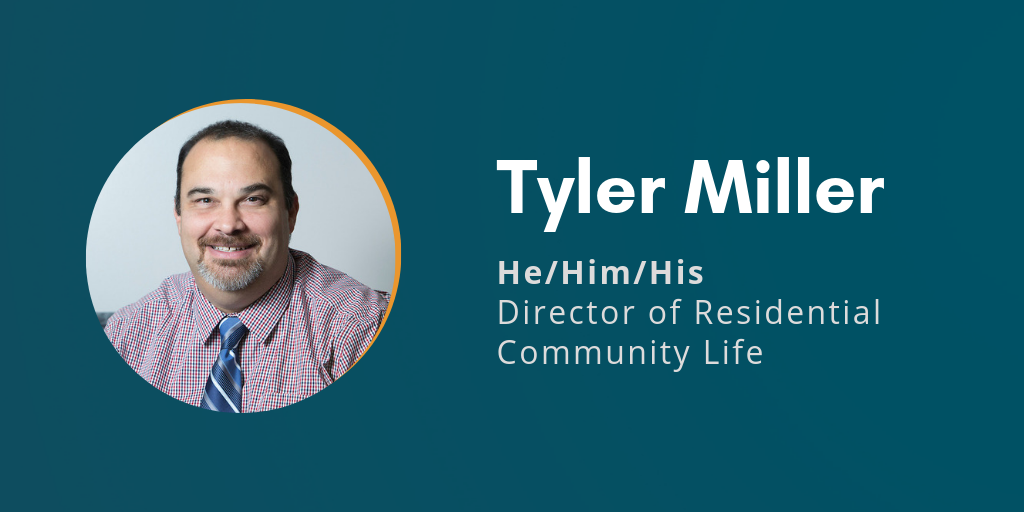In many social justice spaces, you’ve likely heard someone challenge allies to engage in being more of an accomplice.
The word accomplice, with latin roots meaning “with” or “together”, is often used in social justice contexts to remind people of how important it is to be in a community. While being an accomplice often challenges those in privileged positions to act, it not only relates to the needs of those facing injustice but also to individuals who are stuck within the margins of oppression — within and outside of higher education.
While the word can cause confusion (because being called an accomplice is often referenced in someone committing a crime), the word charges folks to assist those who are marginalized and in need of support. Many people are now choosing to use this word in activism work because it goes beyond the savior complex that can be found in ideas of allyship, which often leave marginalized people feeling disempowered.
Being an accomplice means risking positional power to advocate for those who are disenfranchised by systems of injustice.
In this series, I’ll spotlight higher education social justice advocates who are using their positions to engage in civil rights issues, while working to dismantle systems of oppression that affect their campus communities.
I spoke with three student affairs professionals who view themselves as accomplices in their work. I asked each about specific moments where they realized they needed to shift from being an ally to being an accomplice for a specific group of marginalized individuals.
First up is Dr. Brandon Gamble. Keep reading to discover the stories and lessons learned by Ariel Davis and Tyler Miller.

Q: Can you tell me about a time when you realized that you needed to be more of an accomplice than an ally?
It was a series of things, but the overarching theme was that I felt the same energy against me as a Black person when kids at school or in the neighborhood called me the n-word as I did when they called someone an LGBTQ+ slur word. That sinking feeling that there was nothing a person could do to keep from being teased — or worse, assaulted — because of something they had no control over was overwhelming.
Even before my baby sister came out to our family, I was fortunately ready in my training as a psychologist but also as someone who loves his family. I came to the conclusion I would rather have her near than far.
Q: In that moment, what were you risking?
I was raised, and now work, for a very conservative Christian denomination. The bond and connections within that denomination could be lost. Also, our identity within the denomination is so intertwined it would be very unsettling. Once I thought that though, I thought of how much more my sister or friends were going through when they came out, and any of my fears meant very little.
To stand up for and with people you love is never wrong. If so, Jesus and me will have to talk about him and his friends.
Q: How has that moment affected the way you now think about accompliceship?
I became an accomplice at work at a high school. Some conservative Christian teachers tried to get me to go along with their petition against a gay-straight alliance. I had just seen the courage of my sister a few weeks before. Their vitriol towards students and staff who wanted to be themselves was too much for me.
I told my administrators at the building, “Look, if they come for these kids, they are coming for me. I will not condemn, denounce, or doing anything that goes against them living well.”
Q: What advice would you give someone who is looking to move past being an ally?
To do something extraordinary requires a connection to your own story. We are selfish beings. For me, I love my sister, my students, and I love freedom. Any discomfort I felt as an ally is minuscule in comparison to what people who live as LGBTQ+ folks.

Q: Can you tell me about a time when you realized that you needed to be more of an accomplice than an ally?
Just after the election, I remember feeling an unusual amount of dread. I went to sleep hoping for something different and woke up in a real nightmare.
I drove to work in a conservative part of Riverside county. I knew pretty much all of the students at my branch campus. I knew some were gay, lesbian, some were trans, some were out, some were questioning. I didn’t know that their anatomy and physiology professor was going to publicly express his homophobia and transphobia in class that day. A student ran out of class crying. Another came and told me what the professor said.
I called my leadership on their cell phones, texted, called our CARE team, and met my associate dean at her car when she returned from an off-campus meeting. I did everything within my power to support the harmed student, asked repeatedly for the faculty’s contract not to be renewed.
I know that the things I asked for hurt my career. I didn’t care. No one deserves that treatment. I fought back even when the student felt like she couldn’t.
Q: In that moment, what were you risking?
I was risking the wrath of the faculty union. I was risking section coverage for a hard-to-fill teaching position. I was risking a retaliation complaint from the faculty. I was risking a lot. I was risking my job that was tied to my livelihood and benefits for my children, one I was pregnant with at the time. Being an accomplice, you do what’s right in the light or the dark.
Q: How has that moment affected the way you now think about accompliceship?
It is still unsettling to me how, in 2019, people can still be so openly bigoted, even at work, and unchecked at that.
That moment affected me because I really was naïve. I didn’t think review of an incident that heinous would be met with so much opposition towards the subject of the hatred, as opposed to the person spewing the hate. In essence, the faculty told the students at the top of the class, “Now that Trump is president, we won’t be tolerating all of this gay and trans crap.”
He’s still teaching there now. He’s also said some sexist and questionable things towards staff. It’s not the first incident he’s had.
It just helps me understand that the systems and people perpetuating the systems are steadfast in what they do, so I have to be that much stronger to help dismantle it.
Q: What advice would you give someone who is looking to move past being an ally?
Allyship is a fickle relationship. Folks on the bus during the civil rights movement couldn’t have been just allies. They faced water hoses, dogs, cracked skulls, and death. Being an accomplice is a matter of dedication and discomfort. An ally can change their minds with “You wore a shirt with a slogan I don’t like” or “You support someone with extreme views” and flip it off like a light switch.
There ain’t no half-steppin’ with this. To me, you have to be all the way in or all the way out. You can’t just back an oppressed group when it’s fun or convenient.
Allyship is saying “love is love”. Accompliceship is telling your homophobic uncle his slurs and judgement are not okay and hiding behind the bible won’t save him. There is risk involved in being an accomplice. I’m all the way in and willing to speak up, speak out, and publicly support the LGBTQ+ community.

Q: Can you tell me about a time when you realized that you needed to be more of an accomplice than an ally?
Working with an professional housing association for over 24 years, I built relationships with folx who came into the organization and then left frustrated and angry. Most of the folx were black, had disabilities, or were trans.
I had listened to their stories — how folx at conferences cared more about what they were singing for karaoke night than the presentation they were giving. They brought up suggestions and were dismissed without a response. They challenged the power structures and were shot down. And then they moved on, never to be heard from the organization again.
I also heard the framing of these individuals within the association. The narratives being told by people with power — these were problem professionals, who didn’t “act” professional, who didn’t play by the unwritten rules established by the organization.
I saw colleagues of color try to get involved, but no one reached out to say, “Hey, I see you trying to get involved. How can we help you?” Instead, the power encouraged other professionals — those who were polite, civil, and were a part of the “family.”
So I decided to use my power and privilege to run for president of the organization. My goal was to spark conversations.
Q: In that moment, what were you risking?
First of all, my health. I had a heart attack a month before the deadline to run. It’s a long story, but I got clearance to run.
Second, my professional reputation. I knew full well I was risking a lot to disrupt the country club-like mentality within the organization.
Third, I was risking failure. Most of the time, candidates ran for president unopposed. Not me. There were two other candidates.
Fourth, I risked blocking my own goals. One of the folx I was running against was a black professional. My winning the president position as a white cisgender heterosexual man, it would be a direct opposition to my goal of providing more access to leadership. I spent many nights wrestling and wondering whether I should step aside.
Finally, I risked everything by not running a safe campaign. I called out the organization and said although I loved it, there were deep-rooted issues that needed to be addressed. I was told by former white presidents that I couldn’t give the speech I gave because it was too critical. Folx of color encouraged me to give it. I had a choice of which voices to listen to. I gave the speech and won on the first ballot.
Q: How has that moment affected the way you now think about accompliceship?
I read later, in Austin Channing Brown’s book I’m Still Here: Black Dignity in a World Made for Whiteness, a story she told about a white colleague who visited a museum and learned about lynching. The response of the white person echoed my own sentiment: “I don’t know what I need to do, but I know I can no longer do nothing.”
Knowing I need to act but not knowing what to do has allowed me the opportunity to watch for opportunity to take action — many times because I hear professionals of color providing opportunities that often get erased and ignored.
Q: What advice would you give someone who is looking to move past being an ally?
So first, you aren’t going to change the system. The best we can hope for is providing disruption. My white privilege has convinced me that, if given power, I could make significant change.
I learned the system is more powerful than a position. I did a lot of things right; my goals were accomplished. Honestly, the most significant thing I’ve done that has helped me is be a part of a network in which I am the minority.
Most of my learning these days comes from black, queer, and disabled professionals. If you ask me to cite a black author, I can do so easily, and I have 30 to choose from. This was not where I was when I merely was an ally.
And that brings me to my final piece of advice. Our colleagues of color spend a ton of emotional labor doing this work. Instead of burdening them with questions and engagement, there are a ton of books to read to help us as white educators do the work. Reading a book involves no emotional labor on the part of black professionals. The work is already done.
This is just a list from my own personal journey. Read them and find other white educators to discuss it with. That’s where you’ll learn about how we can be accomplices instead of allies.
- Teaching to Transgress: Education as the Practice of Freedom by bell hooks
- I’m Still Here: Black Dignity in a World Made for Whiteness by Austin Channing Brown
- White Fragility: Why It’s So Hard for White People to Talk About Racism by Robin DiAngelo
- History Teaches Us to Resist: How Progressive Movements Have Succeeded in Challenging Times by Mary Frances Berry
- White Rage: The Unspoken Truth of Our Racial Divide by Dr. Carol Anderson
- Between the World and Me by Ta-Nehisi Coates
- Letter from Birmingham Jail by Martin Luther King Jr.
Your Thoughts
What are your thoughts on accompliceship? Add your voice to the conversation by tweeting us @themoderncampus and @DoctorJonPaul.
And while you’re Twitter, check out these hashtags to further your learning, as suggested by Tyler Miller:





